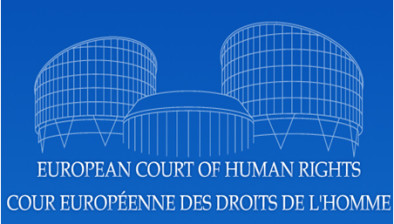NI: PSNI’s indefinite retention of personal data breached rights of man with spent conviction

The PSNI breached a man’s privacy rights by indefinitely retaining his personal data after his drink driving conviction was spent, the European Court of Human Rights (ECtHR) has ruled.
Fergus Gaughran, from Newry, was arrested on suspicion of drink driving in October 2008. He provided a breath sample, which came up positive, and police took his photograph, fingerprints and a DNA sample.
He subsequently pleaded guilty and was given a fine and banned from driving for 12 months. His conviction was spent in 2013.
Mr Gaughran’s DNA sample was destroyed in 2015 at his request, but the PSNI continued to retain on an indefinite basis the DNA profile extracted from his DNA sample, fingerprints and photograph.
He unsuccessfully challenged the PSNI’s continued retention of the data in the domestic courts.
Relying on Article 8 (right to respect for private and family life) of the European Convention on Human Rights, Mr Gaughran complained to the ECtHR about the police retaining his DNA profile, fingerprints and photograph indefinitely and without any possibility of meaningful review.
In a judgment handed down today, the Court found that the retention of Mr Gaughran’s DNA profile, fingerprints and photograph amounted to an interference with his private life which had pursued the legitimate purpose of the detection, and therefore, prevention of crime.
It emphasised the importance of examining privacy rights where the powers vested in the State were obscure and where the technology available was continually becoming more sophisticated. For example, the technology regarding photographs and facial mapping had already moved on since the case had been examined by the domestic courts.
It went on to examine whether the interference in the applicant’s privacy rights had been justified, reiterating that the national authorities had to be given leeway (“margin of appreciation”) when making that assessment. A strong consensus in the member states’ approach to retaining data of those convicted of an offence would narrow that margin of appreciation.
The Court considered that the majority of member states had regimes which put a time-limit on retaining the biometric data, that is, fingerprints and DNA profiles, of convicted persons. The UK was one of four Council of Europe jurisdictions, along with Ireland, to permit indefinite retention of DNA profiles. The margin of appreciation, in particular in respect of DNA profiles, had therefore been narrowed.
The Court underlined though that the duration of the retention was not conclusive in assessing whether a State had overstepped the acceptable margin of appreciation in establishing its retention regime. There was not the same risk of stigmatisation in retaining the data as in S. and Marper v. the UK, which had concerned individuals suspected of offences but not convicted.
What was decisive was the existence and functioning of safeguards. Having chosen to allocate itself the most extensive power of indefinite retention, the State had put itself at the limit of the margin of appreciation. So, it had to ensure that certain safeguards were present and effective for the applicant.
However, the applicant’s biometric data and photographs had been retained without reference to the seriousness of his offence and without regard to any continuing need to retain that data indefinitely. Moreover, the police in Northern Ireland were only empowered to delete biometric data and photographs in exceptional circumstances. Therefore the applicant could not request a review of the retention of his data, as there was no provision permitting deletion if conserving the data no longer appeared necessary in view of the nature of his offence, his age, or the time that had elapsed and his current personality.
The Court found that the nature of those powers failed to strike a fair balance between the competing public and private interests.
The respondent State had therefore overstepped the acceptable margin of appreciation and the retention at issue constituted a disproportionate interference with the applicant’s right to respect for private life, which could not be regarded as necessary in a democratic society.
There had accordingly been a violation of Article 8 of the Convention.
The Court held that the finding of a violation was in itself sufficient just satisfaction for any non-pecuniary damage sustained.







